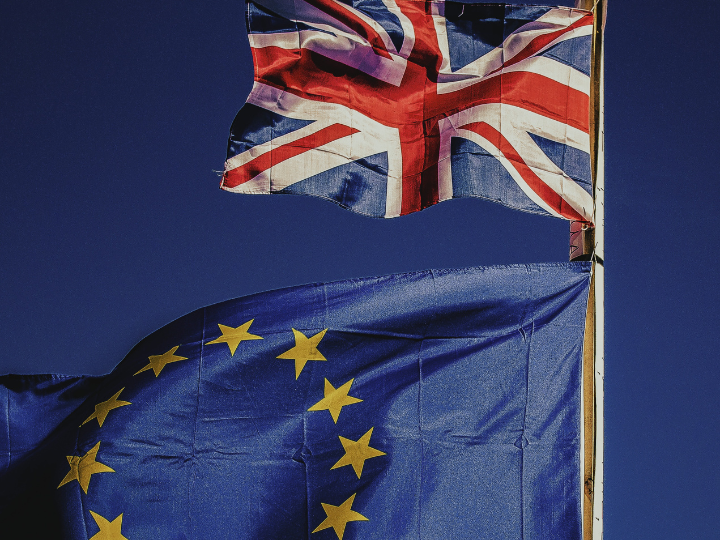by Denis MacShane*
For more than two years now, opinion polls in the UK have uniformly confirmed the British public regard Brexit as a mistake.
Prime Minister Keir Starmer, for his part, has embarked on the laborious slog of gradually climbing the mountain of step-by-step improvements in the early 2020 deal his pre-pre-predecessor Boris Johnson had signed at the time.
The “surrender,” “betrayal,” “sell-out” chorus continues
Unperturbed, Starmer’s move has led the aging purveyors of anti-European ideology emerge like Japanese soldiers from the jungle 20 years after the war ended, still believing their inevitable triumph is just around the corner.
However, their monotonous chorus of “surrender,” “betrayal” or “sell-out” is getting weaker and weaker.
Even the Murdoch papers understand it now
After all, even Rupert Murdoch’s Sunday Times has noted that the voters in the old northern heartlands of Brexit know it has delivered none of its promises and just want to move on.
When Andrew Bailey, the very conservative governor of the Bank of England, says there will be no growth if Britain continues to set its face against trade with Europe, that is an ex-cathedra statement saying Adieu to Brexit.
The ever-unperturbed Mr. Farage
Despite these tell-tale developments, the populist demagogue Nigel Farage will never be bothered by economic facts of life.
Brexit is the elevator that lifted him to national — and at times even global — prominence. His brand of xenophobic, anti-immigration politics is but a self-marketing mechanism.
What is little understood outside the UK is the very complementary interests between Farage and the BBC, which willingly turned itself into his megaphone.
Farage’s fluency on TV was a gift to the BBC’s editors. They were very keen to embrace more tabloid journalism to counter the continuous loss of audiences to sharper, personalized political reporting on the new TV and radio stations emerging in England.
Cautious Starmer
Despite this curious alliance of interests, the effort by the Tories and their fratricidal “Reform” twin to paint the current British Prime Minister as some sort of reckless firebrand is totally off the mark.
Starmer is a notoriously cautious, timid Prime Minister with none of the flair nor drive of a Tony Blair or Margaret Thatcher.
However, after the excitements of Boris Johnson and Liz Truss, voters understandably opted for caution, prudence and stability.
Moreover, contrary to the alarmist protestations of his detractors, the changes that Keir Starmer agreed with Brussels are light years from a return to full EU membership.
Forever in a half-way house
Yes, there is more cooperation based on accepting EU laws and rules. Even so, Britons still cannot work, live or retire freely in Europe.
Meanwhile, in a pretend way of asserting national sovereignty, because of the still irrational national debate, London continues to insist on duplicating common EU wide rules, for example, on regulating the chemical industry — which adds millions in costs to firms.
UK adrift
What about the supposed special trade “deal” the UK government recently reached with the Trump administration?
Far from underscoring the benefits of Brexit, it is widely regarded around the globe as a surrender monkey exercise.
And far from having a special relationship with the United States, the UK is little more than a supplicant these days.
The big lie
Long before the first arrival of Donald Trump in the White House, the Tories’ goal had been to connect the local working class across the country as best they could to their cause.
After all, this group — the core of Labour’s voter base — had lost economic (and also social) status, as their incomes and employment prospects declined.
The irony is that it was the country’s business elites, obviously always closely associated with the Tory party platform, who pulled back on the post-Second World War social contract of state provision, welfare protection and trade union rights.
Conclusion
While in the EU, the UK was always its most awkward member state. But British Europhobes have rendered a great service to the EU by demonstrating that walking out hurts the departing country’s business and citizens alike.
Never mind that Brexit, contrary to pseudo-heroic pronouncements of a cool global Britain, has led to a considerable loss of wider global influence of a quite isolated Britain.
It will take time, but one day Polish workers and Portuguese nurses will be welcomed back in Britain and elderly Britons will again be able to retire to warmer Europe in Spain or Greece. Or so they at least ardently hope.
Wherever the future journey will take the UK, one thing is for sure: The 30 year long Brexit era of British politics is over.
*Former UK Minister for Europe & Contributing Editor at The Globalist




 By: N. Peter Kramer
By: N. Peter Kramer
